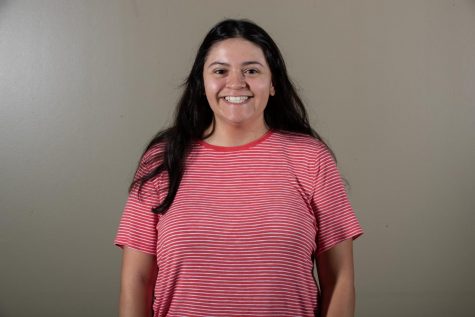Next Generation Science Standards has a three-dimensional approach to science education: crosscutting concepts, science and engineering practices, and disciplinary core ideas.
Locally, Philip Lala, the science-curriculum coordinator for the Iowa City School District, said the district is transitioning to the new standards and has implemented new curriculum at the elementary level over the last three years. Changes will also appear at the secondary level, he said.
“I think the new standards are positive because they take what we have had in the past a step further,” Lala wrote in an email to The Daily Iowan. “Past standards have focused on simple scientific facts and knowledge, while these standards stress what students should be able to do with that knowledge.”
The change has been marked by higher-education officials.
Mark McDermott, a University of Iowa clinical associate professor of education, said, “The goal of the standards is that students and schools should learn the concepts of science by applying the practices of science.”
School districts across the country have adopted the standards, according to the next-gen science monthly newsletter.
The process of creating the standards began in the summer of 2011, and they were released for adoption nearly two years later. Iowa adopted the standards in August 2015, at the recommendation of a state review team.
The standards are meant to replace old methods of science education, which prioritized memorization. The new method incorporates an inquiry-based mode of learning.
“Instead of having a 3-inch-thick chemistry textbook, we have a few relevant real-world problems, and kids try to find data and evidence that supports their searching for answers to those problems,” UI Clinical Associated Professor of education Ted Neal said. “It’s much more driven by students than it is by teachers.”
He became involved with next-gen standards a few years ago when he was asked to be on an adoption committee in Iowa.
“We took a look at a bunch of different standards and decided this was the most student-forward, most relevant way for kids to learn,” he said.
One of the goals of the program is to have kids pursue what they are interested in. Neal said that by teaching science the way students want to learn, there is much more interest than with traditional methods.
“Everything involves science, but if we ask people what is your opinion of science, they hate it, but yet their entire life is [science],” Neal said.
Next-gen standards stem from an inquiry theory from Robert Yager, a UI professor emeritus of science education, with some colleagues.
“They’re kind of the founding fathers of these ideas of how people learn,” Neal said.
RELATED: Pushing ahead with STEM education
With the adoption of the new standards, Iowa students must be able to demonstrate competency and perform up to expectations.
“Because we’re a local control state, we can’t mandate how this plays out,” Neal said.
How next-gen works comes down to individual schools and teachers to decide how they will meet the new standards, Neal said, noting that some schools will just meet the minimum requirements, and others will completely change how their classes are run.
To address the new changes in science education, Neal is putting together an eighth-grade curriculum on climate science based exclusively on the standards, and he will host a workshop. He will then research how well teachers who attended the workshop implemented the content and philosophy of inquiry into their classrooms.
McDermott said he believes learning science should not be involve being lectured to or students being told what they should know about science. He believes it should be a situation in which students get to ask questions.








